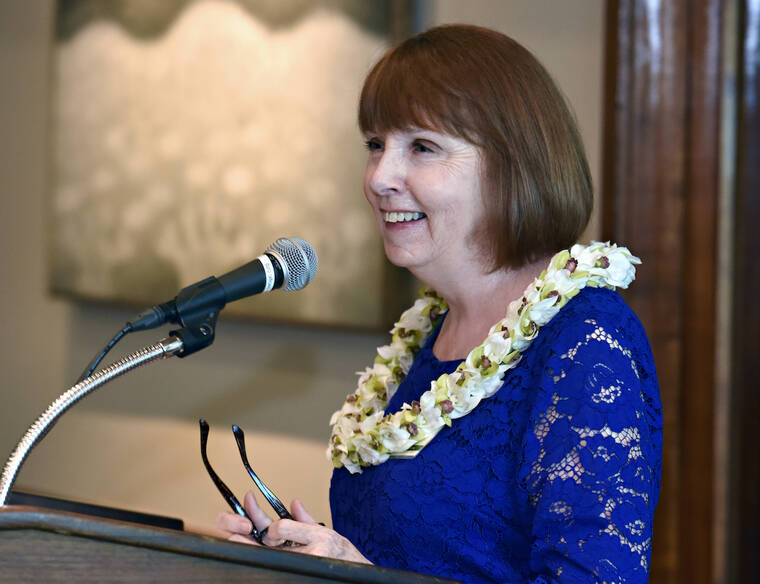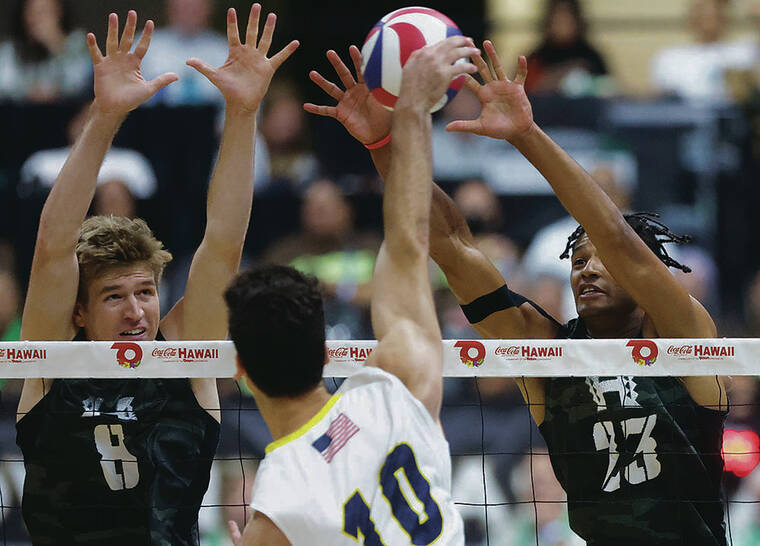Mary Boland, the longest-serving dean in University of Hawaii history, nears retirement

COURTESY MARY BOLAND
With 30 years experience as a working nurse, educator and administrator, Mary Boland was recruited in 2005 as dean and professor of the University of Hawaii at Manoa’s School of Nursing and Dental Hygiene.
Mary Boland was 6 when her parents emigrated from Ireland to the United States. She grew up in Philadelphia at a time when women had few career options. One, however, was nursing.
Boland earned a bachelor’s degree in nursing from the University of Pennsylvania and then a master’s in nursing from Seton Hall University in South Orange, N.J. She went on to earn her doctoral degree from the Mailman School of Public Health at Columbia University in New York.
With 30 years experience as a working nurse, educator and administrator, Boland was recruited in 2005 as dean and professor of the University of Hawaii at Manoa’s School of Nursing and Dental Hygiene. Sixteen years later, she is the longest-serving dean in the school’s history.
Boland, 70, postponed her planned retirement last year to provide continuity in leadership and support for the school and university during the pandemic. She will finish her tenure at the end of October.
We talked with her recently while she enjoyed vacation time in Northern California.
The COVID-19 pandemic has raised public awareness of the importance of what nurses do but also of the potentially fatal conditions that can come with the job. Have you seen a change in enrollment since the 2019-2020 school year?
Don't miss out on what's happening!
Stay in touch with breaking news, as it happens, conveniently in your email inbox. It's FREE!
We are seeing an increased interest in nursing. For the class that just began in August, we had a record number of applications for both entry-level and graduate degrees. Also, a record number of RNs (registered nurses) with associate degrees have entered the B.S. (Bachelor of Science) degree completion program, indicating their commitment to career growth.
Has there been any change in the number of students who choose to leave before graduating?
Our retention rate has remained at close to 90% across all our programs. As of August, we have added COVID to our list of required immunizations to start and continue in the program. I expect we will have a few students who take a leave of absence due to their reluctance to be vaccinated for COVID at this time. However, the larger COVID pandemic has deepened the commitment of students to nursing.
Does the school of nursing get enough support from UH and the community?
UH had always been supportive in the time I’ve been there. The larger challenge is resource allocation in the legislative process, but (the Legislature) has always invested to make sure that we maintain our national accreditation to enroll the appropriate number of students that we could graduate with the resources we had.
How much of what you wanted to do as dean were you able to do?
I’m very community focused. When I considered (coming to) UH it was really clear that there was a lot of community support for the school. At the same time, the school was in a difficult place because there had been some churn with the leaders. There had also been some criticism that the school was not engaged with the health care industry to the degree that they would have liked, so finding someone that was very practice-oriented with my kind of background was really a good fit for them. And also a good fit for me, because I really felt that it was a community where you could have some impact. Service to the community is a key mission. We have to be giving back to this community.
When you watch medical shows, do you critique the portrayal of medical personnel and medical procedures?
Oh, yes (laughs). The one thing you see consistently across all those shows is that nursing is portrayed really poorly. With a couple of exceptions where they show a whole team, you would think that the only person who works in a hospital is a physician. Not only nursing is discounted, but so is the pharmacy — all of the team members that are so critical. There’s actually an advocacy group in nursing that’s been trying to change that so that it becomes more realistic. That’s the major criticism. Most of the medical procedures (that are shown) are pretty on track.
———
Reach John Berger at jberger@staradvertiser.com.





